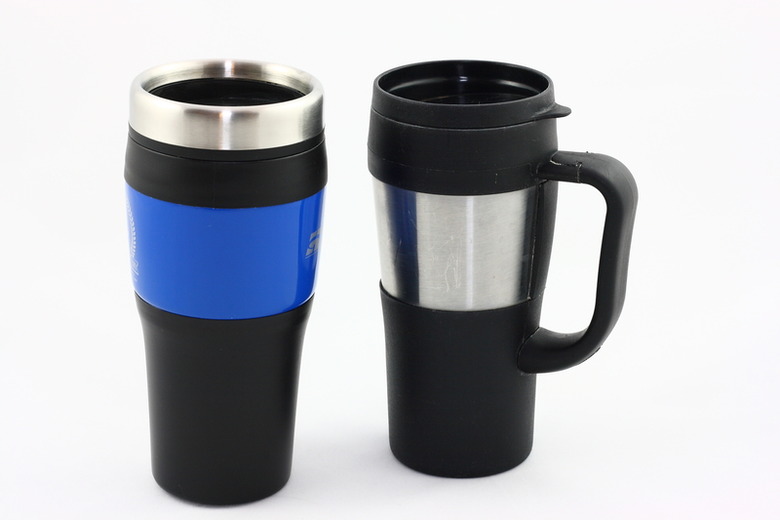You're Probably Not Washing Your Reusable Mug Enough
Whether you're drinking water, coffee, or tea, you need to be washing your reusable mug. It might be one of the things you wouldn't think to clean — but you totally should.
10 Sings You're Dehydrated–And How To Hydrate Fast
It doesn't matter that water won't stain the plastic or that you gave it a quick rinse in the sink — if you're drinking out of it 24/7, you need to be washing your reusable mug every day.
The issue is not what you're drinking — it's that you're putting your mouth on it. Good Housekeeping Institute's cleaning products director Carolyn E. Forté told HuffPost that, "Germs thrive in moist environments and spread easily when the conditions are right. It's not what you are filling it with but the fact that you are putting it to your mouth."
Repeatedly touching your lips to a lid, even if you think your mouth is perfectly clean, could create a breeding ground for bacteria. Rinsing your cup out with just water isn't going to be enough, because the germs from your mouth could spread and get stuck under parts of your cup lid or in whatever reusable straw you're drinking out of.
"If the cup is dirty, hot water alone is not good enough — you need detergent too," Paul Morris, director at packaging hygiene firm AddMaster told U.K. outlet The Telegraph. "The main danger will be from the mouthpiece, which will have hard-to-reach areas that bacteria could grow in."
You should also never use whatever sponge you're finding in your office's communal kitchen, because the way you wash your reusable mug could make you sick. Charles Gerba, a professor at the University of Arizona, told Men's Health that you should really be washing your reusable cups and mugs in a dishwasher, because things like sponges and scrub brushes carry bacteria of their own that can do more harm than good.
You may also want to skip any sort of reusable mug with a sliding top. The Daily Meal reported on a study by Treadmill Reviews that found that sliding-top reusable bottles contained over 933,000 colony-forming units of bacteria, or CFUs. To give you some perspective, toilet bowls have 172 CFUs per square inch — meaning that slide-top water bottles are apparently over 5,000 times more contaminated.
For your own health and safety, don't let your reusable mug become of the 15 items in your home you never clean (but really should).
